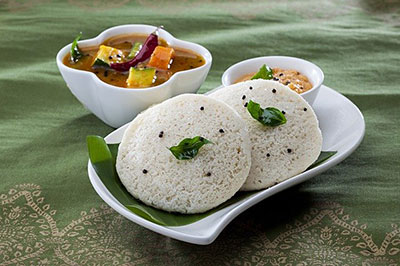A South Indian Diet Plan For Heart Patients
Heart disease is becoming increasingly common and is affecting people of a progressively younger age. Exercise, reducing stress and avoiding addictive substances are among the well-known steps to improve heart health. In addition to this, the right diet can be of immense help in enabling heart patients to improve their cardiac health. This kind of eating plan is also beneficial for those who do not have cardiac problems but have a family history of it – the right diet will go a long way in warding off potential health problems.
The Diet Plan

The general principles of a heart-healthy eating plan include:
Lots of fibre: Research shows that a diet that contains a lot of fibre helps in reducing cholesterol levels. Foods that are rich in fibre are whole grains (brown rice, bajra, ragi, jowar, pasta, whole wheat bread, etc.), vegetables, especially green leafy ones, fresh fruits and pulses.
Lots of Omega 3 fatty acids: Eating foods rich in Omega 3 is good for the heart and especially for those who suffer from Ischemic Heart Disease (IHD). Omega 3 acids also help to build cells and control the clotting function of the blood. Walnuts, flax seeds, soybeans, spinach and fish are all Omega 3 rich.
Consumption of fermented foods: Fermented foods such as curd, buttermilk etc. contain probiotic or healthy bacteria that are essential to good digestion and for overall good health. A small amount with each meal is highly recommended. Homemade products are preferable as store-bought items often contain sugars and other additives that reduce the benefits. If buying from a shop, check the product labels to be sure of what you are buying. Fermented foods must be stored in cold conditions to keep the healthy bacteria alive. Heating will remove the probiotic benefits of the food.
Increase antioxidant intake: Free radicals are substances that are known to affect the body’s natural immune system. Antioxidants, which are found in brightly coloured fruits, vegetables and grains help to control the amount of free radicals in the body.
Low saturated and trans-fat intake: Fats such as ghee, butter, certain cooking oils, etc. cause the build-up of cholesterol in the body. Avoiding, as far as possible, fried foods and items that contain excessive amounts of these fats will help to keep cholesterol under control. Non-vegetarians should avoid red meats and instead opt for lean meats like chicken and fish.
Low sodium intake: Sodium is known to cause an increase in blood pressure and so increase pressure on the heart and other internal organs. Keep your salt intake strictly under control to maintain the right sodium levels.
Also Read: Acid Reflux Should Not Be Ignored
Meal Ideas:
Early morning: A glass of water and a handful of walnut kernels.
Breakfast: Idli (2 or 3) or porridge (1 medium bowl) made from oats (avoid instant mixes) and a bowl of berries.
Morning snack: An apple and a cup of green tea.
Lunch: Any combination of the following - brown rice (1 serving/ 2or 3 serving spoons full), dal and heart-healthy vegetables proportionate to the rice, curd rice, salads, buttermilk
Evening Tea: Tea or coffee along with 1 small bowl of roasted channa
Dinner: 3 rotis made from healthy grains, lemon or tomato rice (1 serving/2 or 3 serving spoons full), vegetable curry or fish/chicken curry proportionate to the rice, curds, fresh fruits.
These are just guidelines. Please note that the portion or serving size will vary depending on the age, size, health of the patient and any other factors that the doctor or dietician may think are relevant. To be sure of eating a diet that is right for you and to know the portion size that your body needs, consult a specialist. The best way to be sure of protecting your heart and your overall health is to consult a cardiac specialist at a reputed hospital.
- Jul 17, 2020
